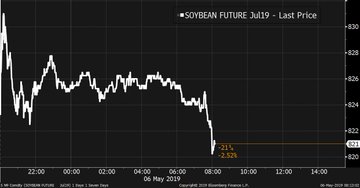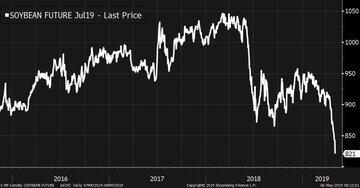Trump Tariff Implementation Planned for Friday
Reuters writers Jeff Mason and David Shepardson reported this week that, “President Donald Trump dramatically increased pressure on China to reach a trade deal by announcing on Sunday he would hike U.S. tariffs on $200 billion worth of Chinese goods this week and target hundreds of billions more soon.
The article explained that, “A less than rosy update from United States Trade Representative Robert Lighthizer, including details that China was pulling back from some commitments it made previously, prompted Trump’s decision and jab on Twitter at Beijing, officials said.”
“USDA projects U.S. agricultural exports at $141.5 billion in FY2019, down slightly (-1%) from $143.4 billion in FY2018.” (“U.S. Farm Income Outlook for 2019,” by Randy Schnepf. Congressional Research Service (April 16, 2019)).
Mason and Shepardson noted that, “Trump said tariffs on $200 billion of goods would increase to 25 percent on Friday from 10 percent, reversing a decision he made in February to keep them at the 10 percent rate after progress between the two sides.
“The president also said he would target a further $325 billion of Chinese goods with 25 percent tariffs ‘shortly,’ essentially targeting all products imported to the United States from China.”
Washington Post writers David Lynch, Damian Paletta and Robert Costa reported on Sunday that,
Trump acted out of frustration over Chinese resistance to some of his most far-reaching demands, according to several analysts following the negotiations.
“For their part, Chinese officials are insisting that the U.S. remove all of the tariffs that Trump imposed last year as part of any deal — a demand that the president so far is refusing,” the Post article said.
James Politi and Courtney Weaver reported at The Financial Times Online on Sunday that, “Among the biggest sticking points in the talks is the fate of existing US tariffs on Chinese goods, which Beijing would like to see completely erased but Washington would like to retain in part so that it can keep pressure on China to comply with the deal.”
On Monday, Bloomberg writers Jenny Leonard, Saleha Mohsin, and Jennifer Jacobs reported that, “Donald Trump’s top trade negotiator told him that Beijing was back-tracking on a trade deal following a round of talks last week, angering the president and leading him to threaten on Sunday to raise tariffs on Chinese goods, according to people familiar with the matter.
“In talks last week in Beijing, Chinese officials told their U.S. counterparts they would not agree to a trade deal that required changes to Chinese law, the people said. China had previously agreed to change its laws in the text of the deal, they said.”
“Trump’s trade negotiators weren’t particularly surprised by his tweets, the people said. The White House didn’t immediately comment,” the Bloomberg writers said.
July soybean futures capped a seventh straight loss as the contract slumped to a record. Soy has been one of the hardest hit commodities by the trade war as China, the world’s top consumer, snubbed American imports.
Hirtzer and Parker indicated that, “The bad weather that farmers are facing is a double blow, according to Scott Irwin, an agricultural economist at the University of Illinois in Urbana-Champaign. Not only are they unable to plant, he said, but this leaves them more time to stew on the current conditions from trade to the overall downturn, Irwin said.
“Recent news reports on the U.S.-China trade talks had led many farmers to believe a resolution might be near. ‘The sense in farm country was ‘my gosh we’re finally going to get out of this nightmare’,’ he said. ‘And then boom.’
It’s ‘like a bad version of the movie ‘Groundhog Day’ for the U.S. farmer,’ Irwin said.”
And Bloomberg writer Shawn Donnan reported on Monday that, “President Donald Trump’s top trade negotiator said the U.S. plans to raise tariffs on Chinese goods on Friday, accusing Beijing of backpedaling on commitments it made during negotiations.
“Still, the trade talks will continue and a Chinese delegation will visit Washington on Thursday and Friday, U.S. Trade Representative Robert Lighthizer told reporters Monday in Washington. Amid those discussions, the Trump administration plans to increase duties on Chinese imports at 12:01 a.m. on May 10, he said.
“‘We felt we were on track to get somewhere. Over the course of last week we have seen an erosion of commitments by China. That in our view is unacceptable,’ Lighthizer said, adding that significant issues remain unresolved, including whether tariffs will remain in place.”
Mr. Donnan added that, “U.S. officials said they haven’t been in contact with Chinese Vice Premier Liu He in the past 24 hours. Liu, China’s top negotiator in the talks, was expected to attend this week’s discussions in Washington, but it wasn’t clear Monday if he would still lead the Chinese delegation.”
Source: Keith Good, Farm Policy News


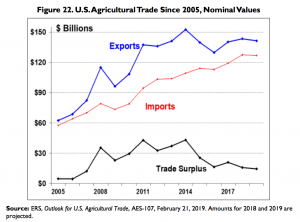
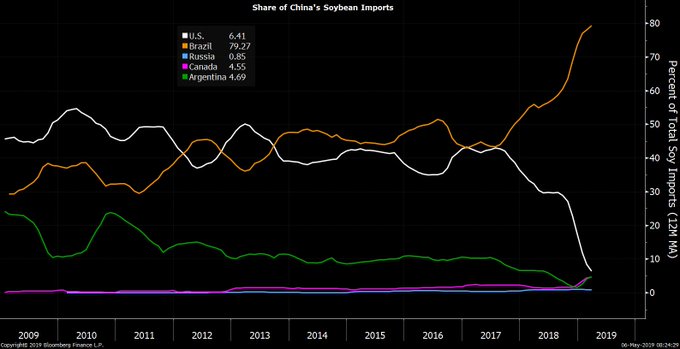

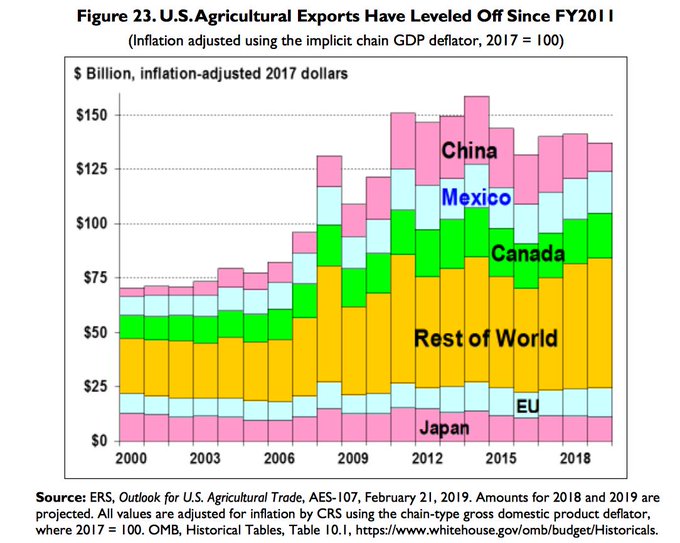

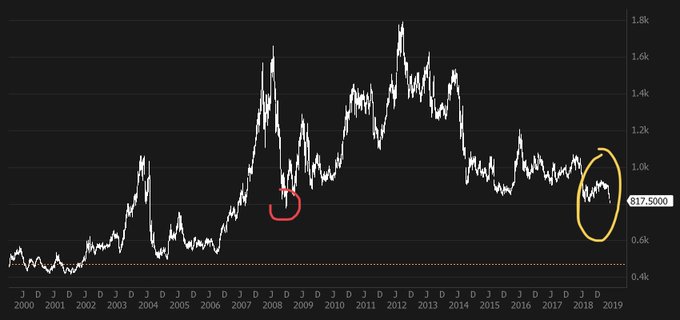



 .
.



